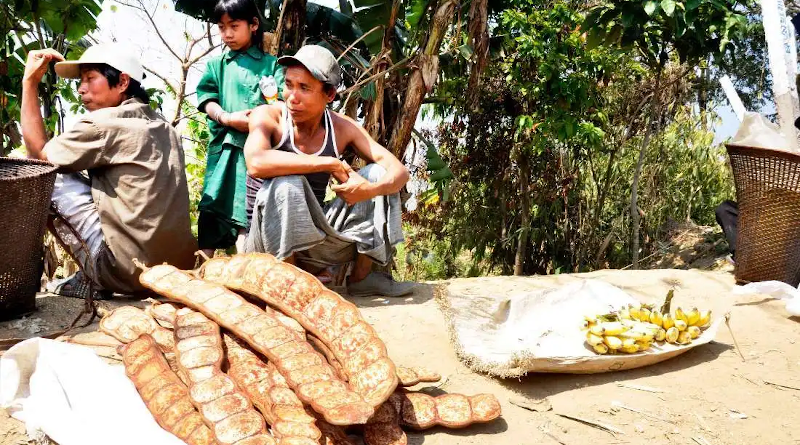Rising Violence In Bangladesh’s Hills Worries Christians
By UCA News
(UCA News) — Christians in Bangladesh’s restive Chittagong Hill Tracts (CHT) region say an uptick in violence and deaths has triggered fear in the community.
In the latest violence, a group of Bengali Muslim settlers burned down 40 houses belonging to ethnic Chakma people in Mahalchhari sub-district of Khagrachhari district on July 5. At least five people were injured, locals said.
The attackers allegedly looted the houses before setting them on fire.
Church sources confirmed no Christians were among the victims of the attack.
Mohmmad Ashrafuzzaman, officer-in-charge of Mahalchhari police station said that no case has been filed over the arson attack, but law enforcers have been deployed in the area to avert further violence.
“Police and soldiers have stepped up patrols in the area to prevent any deterioration in law and order. Senior security officials have visited the area,” Ashrafuzzaman told UCA News.
Local media, quoting eyewitnesses, have reported that a group of about 120 to 150 Muslims led by local community leader Mohammad Aziz, vandalized and set fire to the houses in the Joysen para (village) area of Mahalchhari.
Aziz denied the allegations.
“The allegation that we attacked them is not true. There was a clash between two groups. The accusation of looting is totally baseless. We are keen to maintain a friendship with all,” Aziz told UCA News.
He also dismissed any communal motive behind the clash, adding that it was sparked after tribal people stopped Bengali people from growing crops in local plots.
Earlier, on June 21, an armed insurgent group, the Kuki-Chin National Front, shot dead three ethnic Tripura people and hacked another including one Christian in the Bilachhari area of Rangamati district.
Rights groups say at least 22 members of ethnic minority groups have been killed in violence in the last year and a series of arson attacks targeted tribal houses. While the rise in violence is mostly blamed on a turf war between armed insurgent groups, arson attacks have occurred due to clashes between Muslims and tribals.
Makhonlal Tripura, 29, a Tripura Catholic from neighboring Bandarban district, said Christians are living in fear over a surge in violence in the region.
“We are the locals, but today we do not have any security, neither at home nor outside. Often, we do not know who is killing whom, when and why. The CHT has become a turbulent place,” Tripura, a father of two, told UCA News.
The hilly, forested CHT, bordering India and Myanmar, is Bangladesh’s only mountainous region. For centuries, it was an impassable territory with dozens of Tibeto-Burman ethnic tribal groups living a life of segregation. The British colonial government asserted administrative rule in the region in the 19th century.
Following Bangladesh’s independence from Pakistan in 1971, the region has seen a state-sponsored influx of poor and landless Bengali Muslims. Observers say the move was aimed at a demographic change as the authorities wanted to tackle a bubbling insurgency for secession.
The scheme backfired as tribals opposed Bengali settlements while Bengali people encroached on their land and livelihoods, sparking communal tension and violence.
An ethnic political party Jana Samhati Samiti (JSS or United People’s Party) formed a militia that started attacking settlers. In response, the government deployed the military and for more than two decades a bloody bush war between the army and rebels raged in the CHT, killing thousands. The war ended with the signing of a peace accord in 1997.
A JSS splinter group that opposed the peace treaty, formed another political party and vowed to fight for greater autonomy for hill tribes. Both groups have armed wings and their rivalry has left dozens killed since then. Recently, both groups have experienced further splits while new tribal militia groups have emerged.
Tribal Christians are a tiny minority of the estimated 1.6 million people in the CHT. About two-thirds of the estimated 30,000 Catholics in Chittagong Archdiocese hail from different hill tribes, mostly the Tripura community.
A 56-year-old catechist from the region regretted that while tribals and Muslims have bitter relations, other ethnic groups don’t like him for his preaching.
“I preach the word of Christ and I’m not afraid for my life. However, the Church should try to build good relations with all indigenous peoples, not just Catholics. We also need to reach out to Muslims for peacemaking,” he told UCA News on condition of anonymity.
He pointed out that it is not wise to remain silent when other hill tribes are attacked.
“The next attack may come against me. So, the Church should protest against any kind of violence and injustice,” he added.
Violence in the CHT is a cause of concern for the Church even if Christians are not directly affected, said Father Leonard Rebeiro, vicar-general of Chittagong Archdiocese.
“We always advise our people to be friendly with others so that no bad incident occurs,” he told UCA News, adding that Catholics are organized and ready to tackle any problem.
The priest noted that tribal people have their distinct culture and are not friendly with Muslims, which has been a cause of tension. They have faced persecution from Muslims as they have grown in numbers and aim to dominate tribal people who refuse to accept their control, he said.
“This is a complex situation, yet the Church needs to make efforts for peace. We have to work better to build good relations between Muslims and ethnic groups through inter-religious dialogue,” the priest said.

